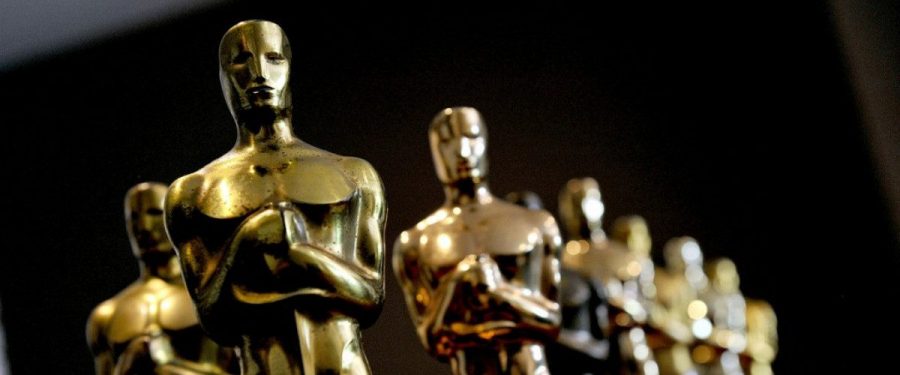The Oscars are upon us once more, so it becomes customary to look back on this year’s best films (from the perspective of the agéd Academy, of course.) This year, nine different – and equally poignant in their own way – films have been nominated for Best Picture.
Darkest Hour
In a year rife with political drama, Joe Wright’s Darkest Hour brings the viewer back into the mind of another boisterous politician, the cigar and whiskey-clad Winston Churchill. Gary Oldman’s chameleon-like acting abilities flourish throughout the movie, and he is surrounded by an equally talented ensemble including Lily James and Ben Mendelsohn.
Focusing on the turmoil surrounding Churchill’s first month in office (and his battle of wits with previous Prime Minister Neville Chamberlain) Darkest Hour plays like a cat-and-mouse thriller – both in Churchill’s personal battles and the potential deaths of countless soldiers at Dunkirk.
Dunkirk
Christopher Nolan and cinematographer Hoyte van Hoytema pair up for a claustrophobic, cinematic, and perplexingly beautiful depiction of World War II.
Nolan regular Tom Hardy graces the screen as a fighter pilot and joins Mark Rylance, Cillian Murphy, and surprisingly enough, Harry Styles. Although the characters remain anonymous throughout the movie (and shy away from documenting actual soldiers like Spielberg’s Saving Private Ryan,) the horrors and triumphs of war remain poignant.
Hans Zimmer’s soundtrack – which ranges from a clock ticking to blaring horns – plays off of the narrative exceptionally well. Although some criticize Nolan’s apparent reliance on Zimmer, the ensemble, score, and narrative come together for a thoughtful analysis of war and the concept of time.
Get Out
It’s hard to imagine that this film was Jordan Peele’s directorial debut; throughout watching Get Out, it’s equally hard to imagine that it was penned by a man who has previously been recognized for his comedic prowess. But after leaving this harsh (depending on who you ask) analysis of race and belonging, I already have tickets for Peele’s next film.
From the obvious and far-too-real (a police officer asking a black man for “identification”) to the too-close-to-home (white Liberals talking about how they would “vote for Obama a third time,”) Get Out is chalked full of thoughtful analysis.
Lady Bird
Like so many other movie goers, I pretended like I knew who Greta Gerwig was before seeing Lady Bird (I have to keep my hipster levels in check.) But after viewing this semi-autobiographical glimpse into Gerwig’s version of a coming of age tale, I wish I’d known about her work sooner.
Centering around the titular bird (Saoirse Ronan,) Lady Bird grapples with living in Sacramento when all she wants to do is move to where there is “culture” (i.e. New York.) She has these dreams despite her family’s lack of income (a mother working multiple jobs and a recently laid off father) and her own delinquency, whether it’s eating Communion wafers or failing math tests.
Lady Bird is surrounded by an endearing cast, whether it’s her best friend Julie (Beanie Feldstein) or the too-cool-for-school, cigarette smoking Timothee Chalamet – the plot brings to mind all of the problems high school seniors deal with (and it does a damn good job of doing so.)
The Post
Daniel Ellsberg (played by Matthew Rhys) walks away with thousands of pages discussing the history of the United States’ involvement in Vietnam. With thousands of young men dead, the truth about the Vietnam war is published by the New York Times. The White House scrambles, Richard Nixon angrily calls his colleagues, and Kay Graham (played by the inscrutable Meryl Streep) has a decision on her hands – to publish or not to publish.
Parodied by Seth Meyers as “Newspaper Movie” and full of journalistic tropes, The Post seems like just another “journalism movie.” But with Steven Spielberg at the helm – and Streep and a chain-smoking Tom Hanks playing off of each other’s acting abilities – the film becomes something much more.
The challenges of the free press will always persist, and many have drawn comparison between The Post and President Trump’s attacks on the media. But despite any political comparisons, the film stands alone as a documentation of the turmoil surrounding free speech.
The Three Billboards Outside Ebbing, Missouri
Revenge, forgiveness and a racist and homophobic Sam Rockwell – this must be a Martin McDonagh movie. It is, and I have to admit, I was biased going into Three Billboards. I have been a fan of McDonagh’s for a while now, since seeing the equally dark and amusing In Bruges.
Mildred Hayes (played by Frances McDormand) is a grieving mother – a year after her daughter is raped and murdered, there have been no arrests, as the trail has gone cold. She rents three billboards (roll credits) urging the police to take action, which unravels the rest of the movie’s plot.
A quirky, gloomy, and highly entertaining cast is sprinkled throughout McDonagh’s film, including exceptional and complex performances from McDormand and Woody Harrelson. Despite McDonagh’s expertly-placed comedic moments, there were few dry eyes when leaving the theater.
As for the final three nominees, Call Me by Your Name, Phantom Thread, and The Shape of Water, I have not seen them yet. But needless to say, I have heard much about them. From the blossoming love between man and monster in Water to the illustrious Daniel Day-Lewis’ supposed final performance, these three films will find their way onto my “to-watch” list.



